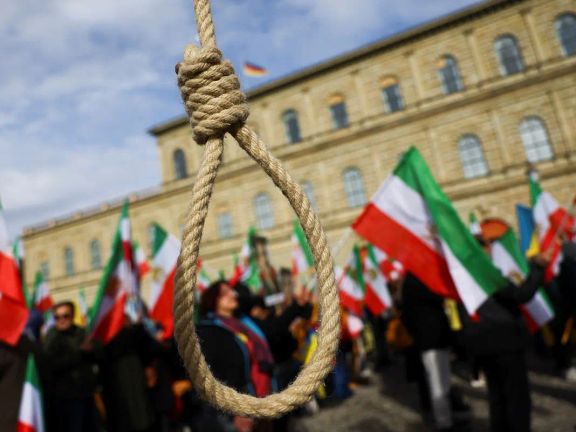Iran Leads Global Surge in Recorded Executions in 2023, says Amnesty

Iran is at the forefront of a surge in recorded executions in 2023, as revealed by the latest report from Amnesty International.

Iran is at the forefront of a surge in recorded executions in 2023, as revealed by the latest report from Amnesty International.
“In Iran, the authorities intensified their use of the death penalty to instill fear in the population and tighten their grip on power, carrying out executions across the country,” said Agnès Callamard, Amnesty International’s Secretary General.
A total of 1,153 executions were recorded last year, with Iran responsible for 74% of these executions and Saudi Arabia for 15%.
“The huge spike in recorded executions was primarily down to Iran,” said Callamard.
Currently, in Iran there are at least dozens of dissidents at threat of imminent execution. That includes prominent rap artist Toomaj Salehi.
At least seven other dissidents, Amnesty said last week, are awaiting execution following their involvement in the "Woman Life Freedom" uprising in Iran.
Among them are Fazel Bahramian, Mahmoud Mehrabi, Mamousta Mohammad Khazrnejad, Manouchehr Mehman Navaz, Mehran Bahramian, Mojahed (Abbas) Kourkouri, Reza (Gholamreza) Rasaei.
The recorded executions in Iran disproportionately targeted Iran's Baluchi ethnic minority, making up 20% of recorded executions despite representing only about 5% of Iran's population.
Additionally in Iran, at least 24 women and five individuals who were minors at the time of the crime were executed.
Surge in Drug-Related Executions Continues
More than half of Iran’s recorded executions were unlawfully carried out for acts that should not result in the death penalty under international law, including drug-related offenses, robbery and espionage, the report said.
Amnesty has called this a "distressing return to a lethal anti-narcotics policy since Ebrahim Raisi’s rise to presidency in 2021."
Execution for drug-related offenses surged and constituted 56% of recorded executions in 2023, an increase of 89% from 255 executions recorded in 2022.
“The Iranian authorities showed complete disregard for human life and ramped up executions for drug-related offenses, further highlighting the discriminatory impact of the death penalty on Iran’s most marginalized and impoverished communities,” Calamard noted.
Iran’s escalating executions since the 2022 uprising
This year, the organization's report titled "Don't Let Them Kill Us", called for urgent international intervention to halt the surge in executions, which it describes as transforming Iranian prisons into grounds for mass executions.
In January, Deputy US Special Envoy for Iran Abram Paley said that the death penalties in Iran were often imposed following "sham trials against defendants who lacked adequate legal counsel."
Following the nationwide protests in Iran in 2022, Amnesty says, Iranian authorities have committed numerous violations of international law in a bit to stifle dissent.
These include hundreds of unlawful killings, arbitrary execution of seven protesters, tens of thousands of arbitrary arrests, widespread torture (including rape of detainees), extensive harassment of victims' families advocating for truth and justice, and reprisals against women and girls challenging discriminatory compulsory veiling laws.
The number of people executed in Iran marks a 48% rise from 576 in 2022.